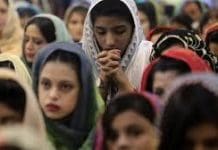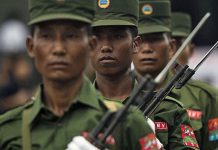By BosNewsLife Asia Service

KATHMANDU, NEPAL (BosNewsLife)– Christians in Nepal have begun “emotional” protests, including hunger strikes, against the closure of the capital’s only Christian cemetery, missionaries said, amid concerns religious freedom will be curbed by a new constitution.
Christian Aid Mission (CAM), a group supporting native missionaries, told BosNewsLife that authorities recently closed the burial site in Kathmandu as part of a perceived state crackdown on religious minorities in this remote, heavily Hindu, Himalayan nation.
In a statement distributed by CAM native missionary and pastor, Sundar Thapa, said protests would spread to the streets if nothing was done after a week of fasting ends this weekend.
He said Christians are asking Nepalese authorities to guarantee new places for non-Hindus to bury their dead – in the capital city, and “also in every province”.
The protests are the latest move in a “long-running struggle” to force government action on the lack of non-Hindu graves, missionaries said.
SMALL VICTORY
On March 18, Christians reportedly had a small victory when a Supreme Court ruled that Christians can use a burial site in the Sleshmantak forest near Pashuputinath, Nepal’s oldest and most revered Hindu temple.
The ruling, set to remain in force “until other alternatives are found,” reversed a ban imposed in December, according to CAM missionaries.
Yet the decision has done little to overcome a lack of Non-Hindu cemeteries in Nepal, where there may be as many as one million Christians, CAM said. “Although official statistics say only 2.85 percent of the country’s 29.8 million population are believers, Christianity is the fastest growing religious faith at a rate of 5.3 percent annually,” the group explained.
In Kathmandu, where CAM claims some 400,000 Christians, dozens of Christian men and women were seen going without food or water while praying and sing hymns around a symbolic red coffin in a tent in the capital’s center.
CIVIL RIGHTS
For the growing Christian community, the burial issue has become a matter of civil rights and recognition of their status ahead of an upcoming constitution, suggested Thapa, who is also president of the ‘Christian Advisory Committee for the New Constitution.’
Missionaries and other devoted Christians have expressed concerns that draft constitution, aimed at completing the country’s transition from a Hindu monarchy to a secular democracy, contains provisions in its “religious freedom” section that prohibit anyone from converting others from one religion to another.
Christians say this could curtail the possibilities for evangelism and other open expressions of Christianity. Nepalese officials have denied wrongdoing but say they will look into the text of the constitution, which is scheduled to come into force by late May.
CAM said it remains concerned that “Since the Himalayan monarchy was overthrown in 2008, Nepalese Christians have been struggling for recognition of their basic human rights.”
Hindu nationalists oppose evangelism especially by foreign missionaries, who CAM claimed “are forbidden to proselytize as a condition of their visas.”








